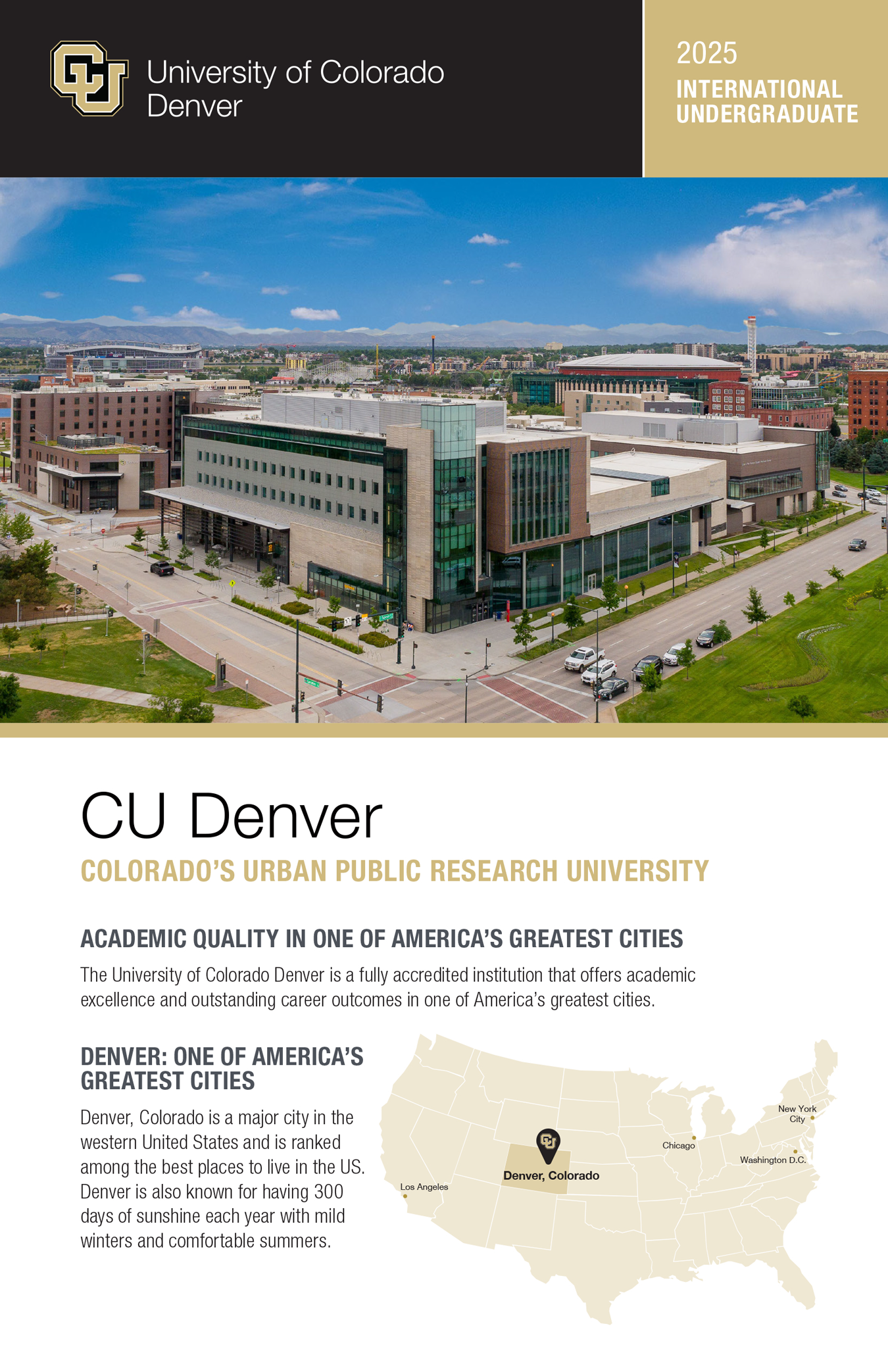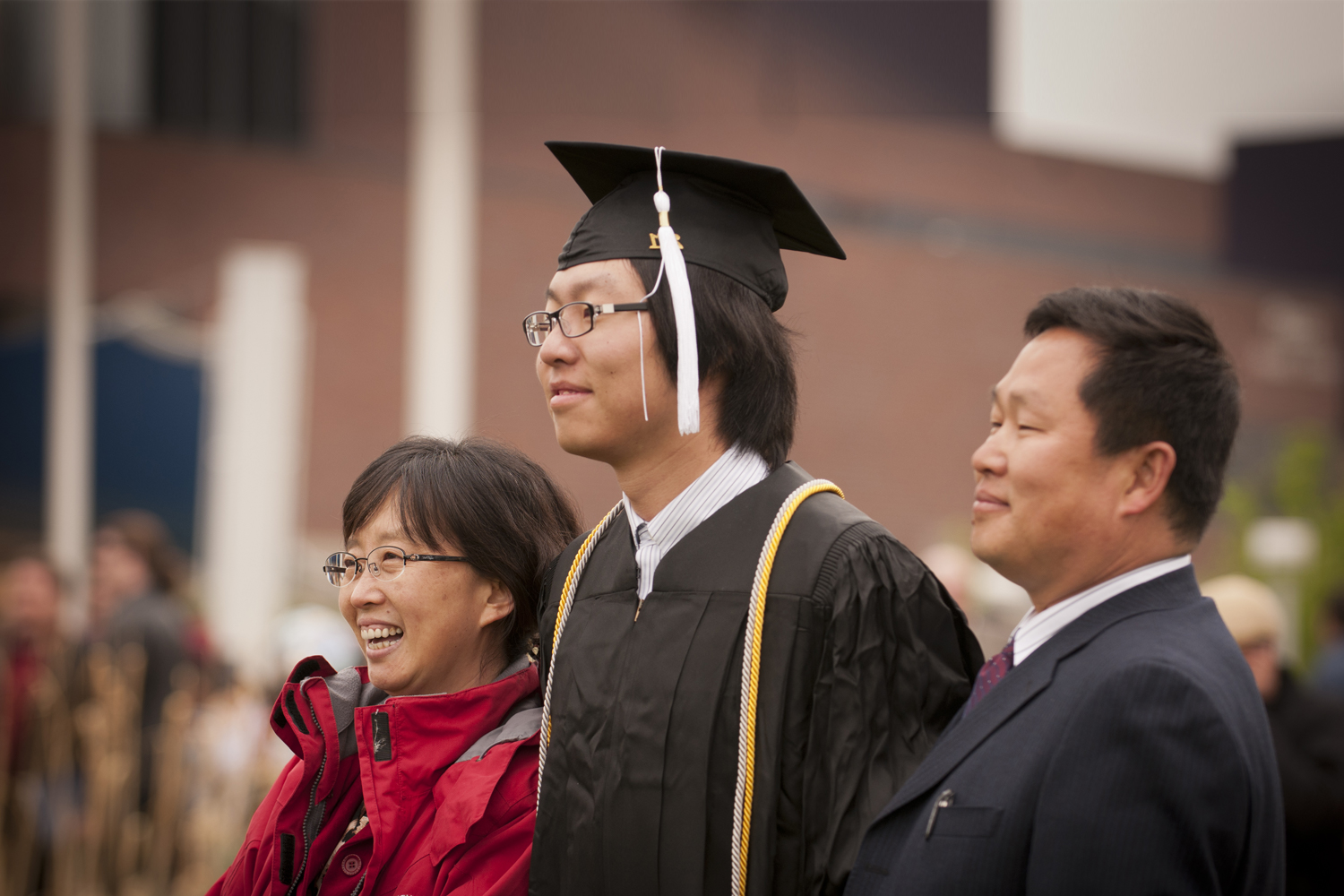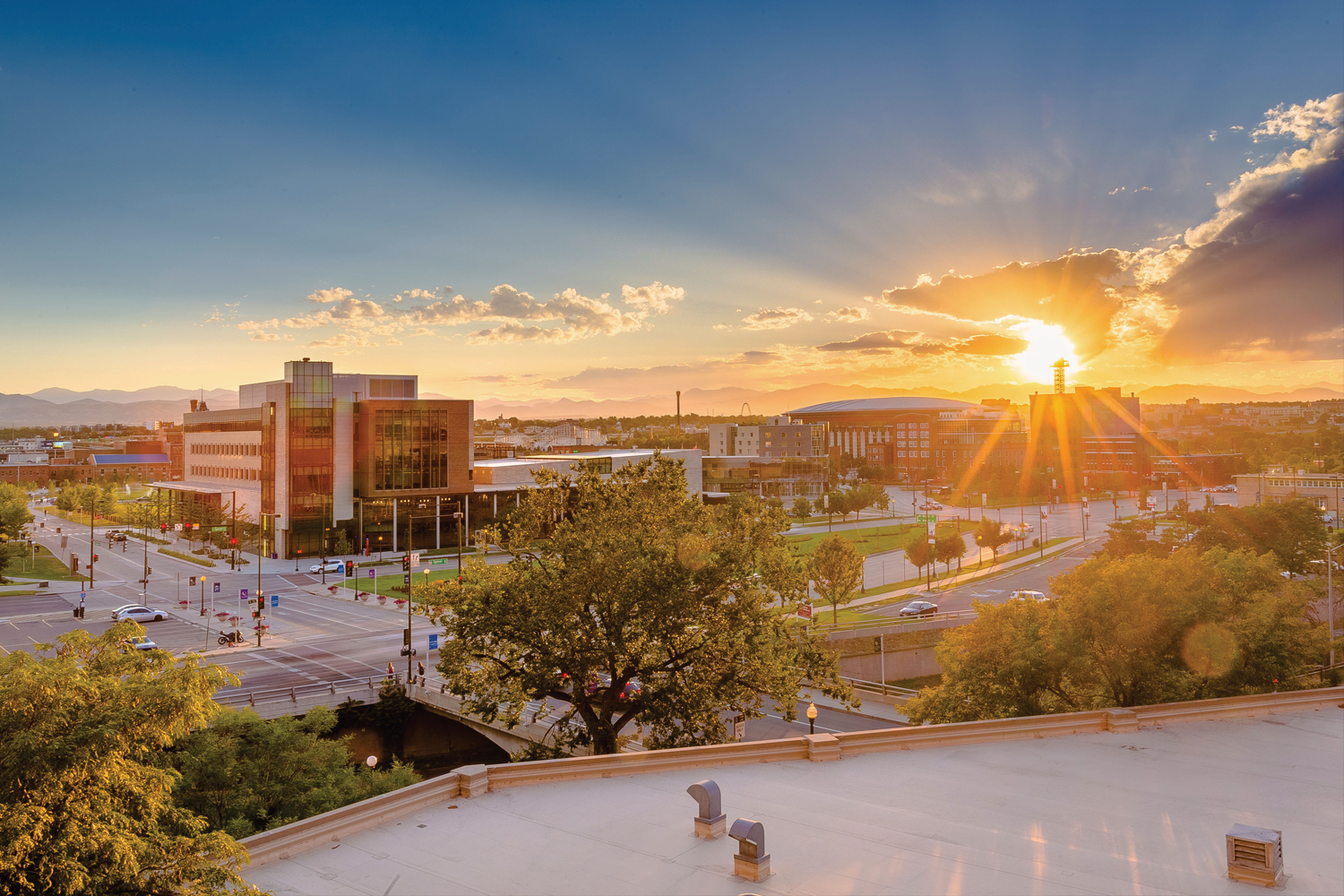“USA Open for Business & Welcomes International Students”
US State Department Official In Conversation at CU Denver
Jun 15, 2018
“The United States is open for business and we still welcome international visitors and students,” explained Assistant Deputy Secretary for Visa Services Edward J. Ramotowski, Bureau of Consular Affairs, U.S. Department of State. Hosted by the Office of International Affairs, University of Colorado Denver, Ramotowski spoke at a May roundtable event that provided an excellent opportunity for international education professionals, including administrators and advisors, to learn more about U.S. visa policies.
Ramotowski joined the State Department more than 30 years ago. He previously served as chief of the consular section at U.S. embassies in the Bahamas and Poland, and in other positions in Mexico, Colombia and Jamaica. He received several Department of State Superior Honor and Meritorious Awards, including the Barbara Watson Award for consular excellence. In his current role, he has been recognized for management excellence in improving visa processing for foreign visitors and for upholding effective vetting procedures.
“At the Department of State, we recognize that international education is vital to our economy and society,” said Ramotowski. “In all of my travels, I’ve found that even if students may have a different opinion on some political matters, they on the whole have a positive experience here in the U.S.”
The International Student and Scholar Services team at CU Denver | CU Anschutz Medical Campus assesses a student’s eligibility for an F-1 or J-1 visa based on the regulations governing these programs and helps international students understand their responsibilities to maintain their status once they get to the U.S. Ramotowski explained that a consular official must assess each individual visa application. During the visa interview, a consular official reviews the applicant’s academic or research program as suited for the individual’s professional direction, ensures that their finances are in order, and that the individual will comply with the U.S. immigration law by returning to their home country after completing the academic program. According to Ramotowski, the officer must use “good common sense, as well knowledge of the local language, culture, and economy” to make these evaluations.
During the roundtable’s question and answer session, many hands, and many questions, were raised.
Q: How can we work together with you and your office to maintain international student enrollments and our valued international student population at CU Denver? I wonder how many citizens of Colorado realize that international education is the state’s fifth largest export?
A: There is a misperception among some Americans that there are too many international students in the U.S., including Chinese students. It is important that U.S. universities promote the importance and value of international education in their communities, as well as take their compliance responsibilities seriously and keep their international student records up to date.
Q: CU Denver has the oldest U.S. degree program of its kind in China. We are committed to academic freedom in the U.S., regardless of finances. There is concern that China will eclipse the U.S. as a study abroad destination (it is the third study abroad destination in the world).
A: The United States is still a world-class education destination and the Department of State will do all it can to help maintain that status, consistent with U.S. immigration law and national security. We have active outreach programs in foreign countries to encourage students to consider studying in the United States, and we give student visa applicants priority in scheduling visa appointments at U.S. Embassies and Consulates to help ensure they will get to class on time.
Q: Optional Practical Training (OPT) provides a short-term workforce advantage for international students and American companies. However, there is some confusion surrounding this option.
A: Aspects of U.S. immigration law and visa regulations are complex, but certain basic principles are pretty clear. International students are admitted into the United States in a specific status either for the duration of that status or for a specific period of time. It is very important for the students to comply with the terms of their status and not exceed the authorized period of stay. Colleges and Universities can help students comply with these requirements. Changes in status or extensions of stay, if needed, can be requested from the Department of Homeland Security and should be done in a timely manner, not at the last minute. Students should be aware that immigration violations can have serious consequences, including a temporary or permanent bar from returning to the United States in the future. It is important to keep in mind, however, that a large majority of international students comply with the law and experience no difficulties traveling to and from the United States.
Q: Some U.S. universities have reported that international students want to go to Canada to obtain visas. What is the checking process for this and what do you recommend?
A: As an international student, it is better to renew your visa in your own country. The digital revolution has been wonderful, however, some of the watchlist information online is ambiguous, particularly if students share a common name, and can delay the visa processing. If this happens, it is better to be in your home country where your family and friends reside than in a country where you have no support network. The Department of State makes every effort to complete visa processing in an expeditious manner, but sometimes delays are unavoidable.
Deputy Assistant Secretary Ramotowski concluded the discussion by encouraging the university to continue to demonstrate credibility and to engage in fruitful dialogue with the U.S. administration.
“It has been an honor to host the roundtable with Deputy Assistant Secretary Ramotowski,” said Michelle Larson-Krieg, Director, International Student and Scholar Services, University of Colorado Denver. “Thank you very much for taking the time to convey the message that the ‘U.S. is open for travel and study’ and to engage in a meaningful dialogue with international education professionals from Colorado’s Front Range.” She added, “The perspective that your 30+ years of experience have given you, along with your common sense approach to the challenges of the day, are incredibly reassuring.”
LEARN MORE
International Student and Scholar Services, University of Colorado Denver
And don’t forget to refer often to the Updates section






